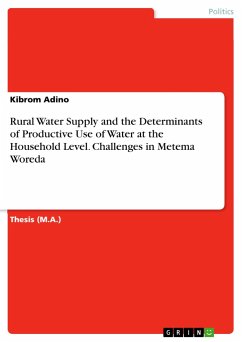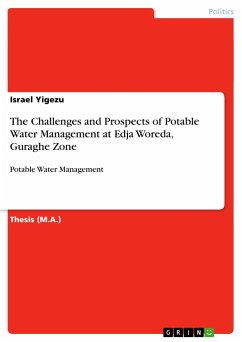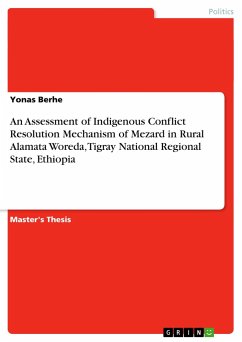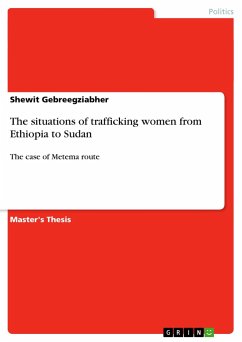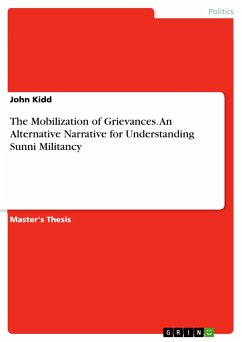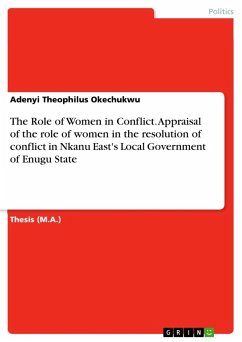Thesis (M.A.) from the year 2013 in the subject Politics - International Politics - Topic: Development Politics, Addis Ababa University (Regional and Local Development Studies), course: Full Regional and Local Development Studies courses, language: English, abstract: These days, water has become a highly essential ingredient for the rural household's home based productive use of water beyond the usual basic needs of consumption. In recognition of this, this study is aimed at three main objectives: assessment of the home based productive use of water, the factors that affect the productive use and examining the major challenges of rural water supply in the study area.In an attempt to deal with these objectives the study selected Metema Woreda in Ethiopia as a study area from which four kebeles were selected randomly to have 130 household respondents. The major methods of analysis in this study were both descriptive analysis and a logistic model to meet on the aforementioned objectives.The analysis and discussion of the study revealed that water is the prime input for home based productive uses in addition to the usual basic needs of consumption. To this effect, traditional brewery, home gardening, water selling, small ruminants and rural restaurants were the major home based productive uses of water in the study area. Yet the productive use of water in the study area was found to be constrained by demographic and economic characteristics of the households and the physical and environmental situation of the water supply of the area. Moreover, the study recognized that the water supply in the study area is hindered by a combination of institutional, physical, and technical challenges. Hence, in recognition to these, the concerned bodies at all levels should recognize the challenges of rural water supply as multiple and interlocking that requires a systematic approach. Moreover, the productive use of water at household level should be mainstreamed in the policy of rural water supply and management efforts of the country as equally important as the irrigation sector.

